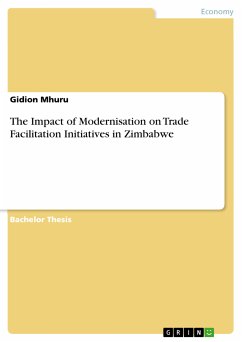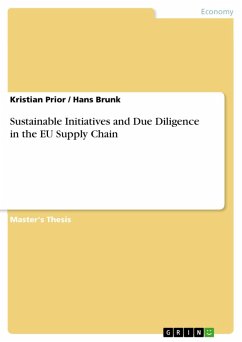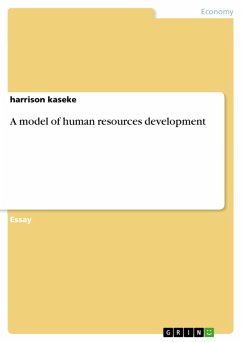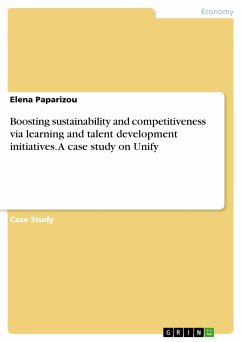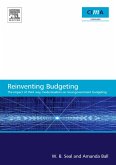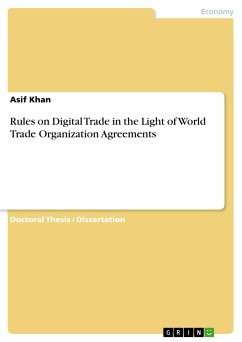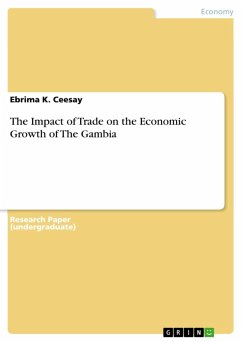Bachelor Thesis from the year 2012 in the subject Business economics - Trade and Distribution, grade: 1, National University of Science & Technology Zimbabwe (National University of Sciences and Techology), course: BACHELOR OF COMMERCE (HONOURS) DEGREE IN FISCAL STUDIES, language: English, abstract: The research was aimed to establish the impact of customs modernisation on trade facilitation initiatives implemented by ZIMRA and the relationship between modernisation of customs procedures and economic growth as well as the challenges being faced by the Customs Administration in its objective. The research seeks to answer the following questions: To what extent does the economic environment have any bearing on the modernisation procedures in Customs Administration? How relevant is the Customs legislation in support of modernisation of customs trade facilitation initiatives? Has ZIMRA achieve its intended goals towards embarking on modernizing its Customs operations? What is the impact on various stakeholders, for instance, importers, exporters and the Zimbabwean government? What are the benefits and costs of trade facilitation? What is the relationship between trade facilitation and economic development? The implementation of customs reforms is a topical issue in the customs modernisation field to the extent that the donor community has been funding the projects in many developing countries. However, the greatest challenge is on to the extent to which they affect trade facilitation initiatives. Modernisation of trade facilitation initiatives has been described as the key to sustainable economic development and thus a poverty reduction tool. Zimbabwe has not been seen to be much committed to trade facilitation, instead, it has been characterised by cumbersome and complicated trade procedures, which have worked against trade facilitation in most third world countries. Some of the modernisation initiatives proposed are not being fully utilised. Thus the researcher seeks to evaluate the consequences of those initiatives if implemented in the Customs Administration. Zimbabwe's economy is backed up by trade with other countries and is also used as a transiting country which links trade between various other countries.
Dieser Download kann aus rechtlichen Gründen nur mit Rechnungsadresse in A, B, BG, CY, CZ, D, DK, EW, E, FIN, F, GR, HR, H, IRL, I, LT, L, LR, M, NL, PL, P, R, S, SLO, SK ausgeliefert werden.

